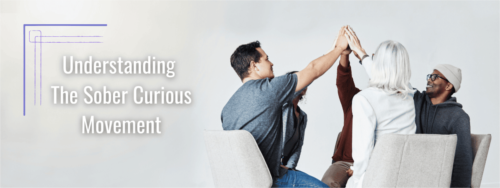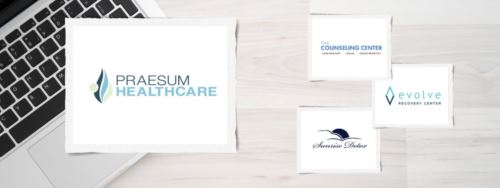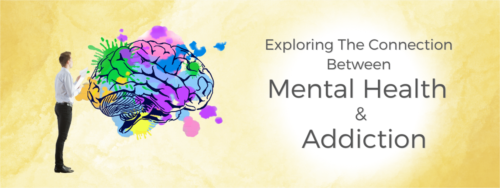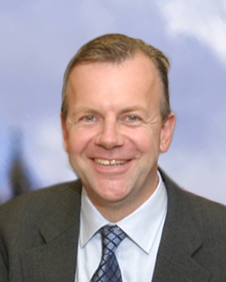
.jpg)
What To Know About Drug Use Disorder And Addiction
No person ever expects to develop a drug use disorder, but this serious disease touches millions of Americans each year. Drug use disorders transform your mind and body and can ruin your life. Mercifully, there is support for anyone battling drug use. Specialized drug addiction treatment is available in the area and can enable you to take back control of your life. Keep reading to find out more about drug use disorders and addiction and how individuals and families can overcome these conditions with expert guidance.
What Is A Drug Use Disorder?
Many people take illicit drugs for recreation or powerful prescription drugs to address medical conditions. But when does drug use become a life-altering disorder?
Generally, drug use transforms into a disorder when a person displays concerning patterns of use and loses control of their use. Drug use disorders are mental illnesses that vary between mild to severe. These health issues disrupt your life and have a negative effect on your wellbeing.
There are distinct facets of drug use disorders:
- Dependence occurs when your body becomes so reliant on a drug that it struggles to operate when it’s not present. You will experience distressing withdrawal symptoms if you quit using the drug.
- Addiction is a mental dependency. Addictive drugs change your brain chemistry so that you constantly crave those drugs and feel driven to take them in growing amounts. You are unable to regulate your mental state and behaviors. Addiction is the most extreme form of substance use disorders.
All levels of drug use disorder are hurtful to your mind, body, relationships, and happiness. If you are concerned that you or someone you love has a drug use disorder, find specialized support for recovery. All individuals are entitled to help.
What Drugs Are Dependency-causing?
Addictive drugs include powerful chemicals that modify your brain. Some are dangerous enough to be illegal. Others are legal prescriptions but can turn hazardous when misused or overused. Below are many of the commonly found addictive drugs in the United States:
- Narcotics deaden the senses, which enables them to be potent analgesics. But, people also use them to dull other unwanted feelings and can get addicted quickly. Narcotics are often classified as opiates or opioids. Opiates are plant-sourced substances. Opioids are lab-created. Heroin is a widespread prohibited narcotic. Legal drugs like Vicodin, Percocet, OxyContin, morphine, and fentanyl have pharmaceutical uses but are dependency-causing and often used improperly.
- Benzodiazepines are mood-altering drugs typically given for mental disorders. But, they can lead to addiction when not used properly. Their calming qualities cause you to feel relaxed. Xanax and Valium are widely recognized benzos.
- Stimulants consist of prescriptions like Adderall and Ritalin, as well as prohibited drugs like methamphetamines and cocaine. They activate your central nervous system, leaving you feeling alert, animated, and euphoric. Excessive use of stimulants can be deadly.
Each of these types of drugs can result in a drug use disorder. They all possess the potential to derail your life and create life-threatening medical conditions. Seek assistance for yourself or someone close to you at the initial indication of dependency.
How Does Drug Addiction Start?
There are various reasons why individuals start using dependency-causing drugs. Many do so for pleasure because they relish in the sensations those chemicals generate. Some people get addicted to medications they're using for medical reasons. Additional people start using drugs to cope with unmanaged mental illnesses and experience short-term respite.
No matter the primary factor for first taking these substances, the path to addiction is typically the same. Your body becomes reliant on the drug, and you feel ill when you don't take it. You ingest more just to get by. You may gradually require greater doses for the drug to have an impact. You like how its impact feels. You feel desperate without it and persist in using it. Over time, those chemicals dominate the reward system of your brain, and you are unable to feel normal unless that drug is present.
If you're addicted, finding a steady supply of the drug is the only thing that matters. Multiple people suffer medical issues, destroy relationships, forfeit jobs, and take serious risks becasue of drug addiction. Your addiction overpowers you and everything in your life, and you are powerless to quit without skilled assistance.
What Are Signs Of Drug Addiction?
It could look like a drug use disorder would be obvious. However, these disorders can manifest differently among individuals, and those you care about will frequently try to mask their drug use from family. If you have doubts if you or a relative have a drug use disorder, reflect on the following indicators:
- Experiencing an irresistible urge to take the drug
- Failed efforts to cut back on or quit using the drug
- Dedicating much time obtaining the drug, taking it, or coming down from its effects
- Consuming a prescription drug for longer periods or in larger amounts than ordered
- Having difficulty handling responsibilities due to drug use
- Letting go of cherished pursuits to use drugs
- Continual use of the drug even when it damages relationships
- Continuing to use the drug even when it negatively impacts your physical and psychological health
- Needing more of the substance to feel its effects
- Going through withdrawal when trying to stop
- Engaging in risky behavior to obtain or ingest the drug
Drug use disorders may look different among individuals. If you or someone you love are showing any signs of drug addiction , talk to a local doctor or addiction treatment expert.
Where To Find Drug Addiction Treatment In
Drug use disorder treatment is a multi-step process. Many people will slip up and have to revisit steps multiple times. You may not be “cured” of drug use disorder, but many people find recovery and use what they explore during treatment to live a rewarding, substance-free life. The key is finding specialized, proven treatment that aligns with your needs.
Each person’s recovery journey will be uniquely their own. Even so, treatment generally involves the these steps at accredited treatment facilities:
- Drug detox is the method of letting your body clear itself of substances. Your system will do this naturally if you abstain from taking more drugs. Unfortunately, if you have a drug dependency, your system will experience withdrawal without substances. To properly complete detox, you should check into an inpatient detox treatment center that supplies 24/7 medical supervision and takes steps to keep you comfortable.
- Drug rehab programs also provide inpatient treatment. In rehab, you’ll still live at a treatment facility and get access to medical care for any lingering withdrawal symptoms. Each day, you attend different types of psychotherapy with the aim of understanding your addiction, learning new beneficial habits, and treating any underlying mental disorders. You should stay in rehab until you become physically and mentally strong enough to depart that sober environment.
- Once you leave rehab, you should still get intensive addiction care. Outpatient addiction and mental health services will help you live your life without addictive drugs. These programs offer continuing therapy and medication management. To start, you could participate in outpatient care daily and head home each night. Gradually, you’ll require less therapy and may only attend therapy weekly or less.
Everyone has a right to expert, compassionate addiction treatment. Regardless of how advanced your addiction might be, recovery is possible. Pursuing appropriate treatment at an accredited treatment center is critical for your future. There’s no need to fight addiction by yourself. You have many possibilities for drug addiction treatment .
How Can Families Assist A Loved One Battling Drug Addiction ?
Those with a drug use disorder need all the assistance they can obtain. Family and friends can play crucial roles in addiction recovery. If you care for a person with a drug use disorder, here are several ways you can assist them:
- Help them enter a treatment program
- Help them make payments for treatment
- Attend family counseling with them
- Take part in aftercare planning
- Provide a safe, drug-free environment to live in
- Withhold judgment
- Set boundaries around their drug use
- Offer transportation to outpatient treatment appointments
Find Help For Drug Use Disorders Today
No individual should confront drug use disorders alone. If you or a family member are struggling with drug addiction, there is hope for recovery. Reach out to Evolve Recovery Center at 888-369-7727 or fill out the contact form on this page. One of our team members will reply immediately to discuss treatment. All calls are free and secure. You can reach us 24/7, all year round. Help is available today. We are standing by for you.
 From the East Coast and beyond, Generation Z has decreased their drinking. What is this drive toward Sober curious, and how will it influence recovery?Read Full Article
From the East Coast and beyond, Generation Z has decreased their drinking. What is this drive toward Sober curious, and how will it influence recovery?Read Full Article What do experts say about virtual substance use treatment? Read and find outRead Full Article
What do experts say about virtual substance use treatment? Read and find outRead Full Article Its not unusual to endure both a substance use disorder and mental illness . The good news is, both may be treated at the same time.Read Full Article
Its not unusual to endure both a substance use disorder and mental illness . The good news is, both may be treated at the same time.Read Full Article

